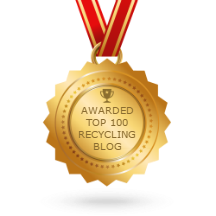Contributing to the overall sustainability of the environment in even a small amount can make a considerable difference in the long run. By regularly practicing eco-friendly living you do exactly that. However, in order to truly create the change that we want to create, it’s important we get others involved in conserving and recycling as much as we can. So why not start with our own kids? After all, it’s easy to build good values/principles when someone is young.
Encouraging green or eco-friendly habits in children starts with you. Here’s how you can help them developing these habits:
#1: Set a Good Example
Being a parent, you are your child’s first role model. So if you want them to live in an eco-friendly manner then you need to live that way. You need to demonstrate how it’s supposed to be done. For example, if you want your kids to conserve water by turning off the water when brushing their teeth, then do it yourself first. You can do many such things such as: not leaving the lights on when leaving a room, unplugging any equipment/appliance that is not use, etc. When your children see you do something positive, they follow your pursuit.
#2: Reuse, Recycle and Reduce
When you go out shopping make sure you use a reusable bag so that your kids know the importance of that practice. Also, get your kids involved in decluttering your home by throwing away or selling the unnecessary items, while safely storing what is useful. If you live in a hot place like Phoenix, AZ rent climate controlled self-storage to store your stuff and instead of discarding reusable items between children, so that you can reuse them in the future without letting them clutter your home. When it comes to recycling, work with the kids to create fun and decorative boxes that can be used for sorting and separating glass, paper and plastic.
#3: Plant a Garden
Saving money on groceries and eating organic food is a great way to show your children the importance of going green. Preparing and planting a garden with your children will help you do just that. Besides that, when you let them get in the dirt and experience how mother earth works, you’ll have them love nature and the whole idea of going green. However, see to it that you don’t compromise when it comes to being organic in your approach. Avoid using pesticides and use natural seeds at all costs.
#4: Begin an Energy Saving Project
One of the best “eco-friendly” teaching that you can impart to your children is to be independent of “public utilities”. Show them how installing your own solar power generating system can help create energy the eco-friendly way. This can be a fun project that your kids can get involved in. If you do some online research you’ll easily be able to find good training videos/material to get a good, viable start. By teaching your children about solar power, they not only learn how to save energy, but also money.
*Originally posted by www.ecochildsplay.com







































